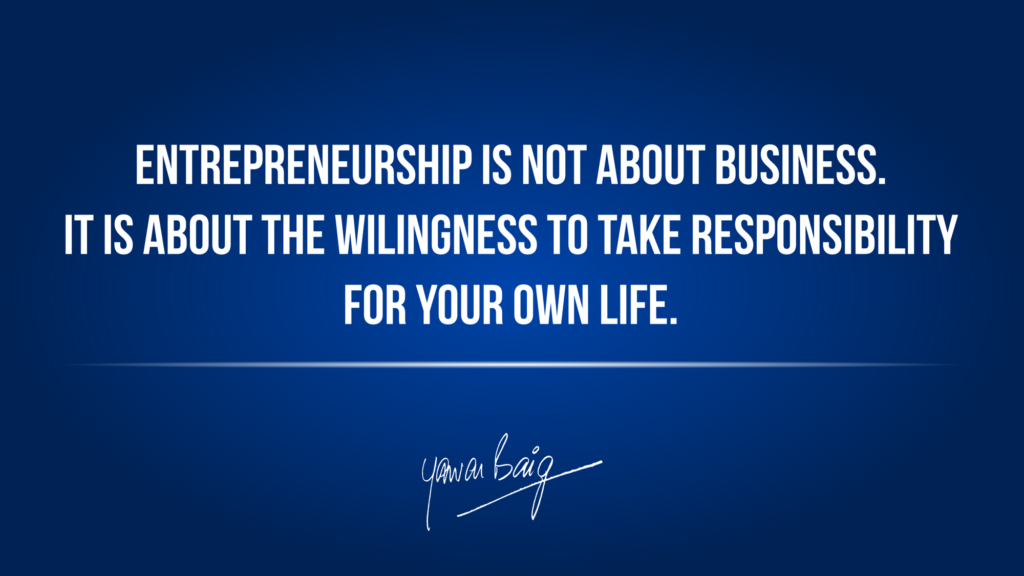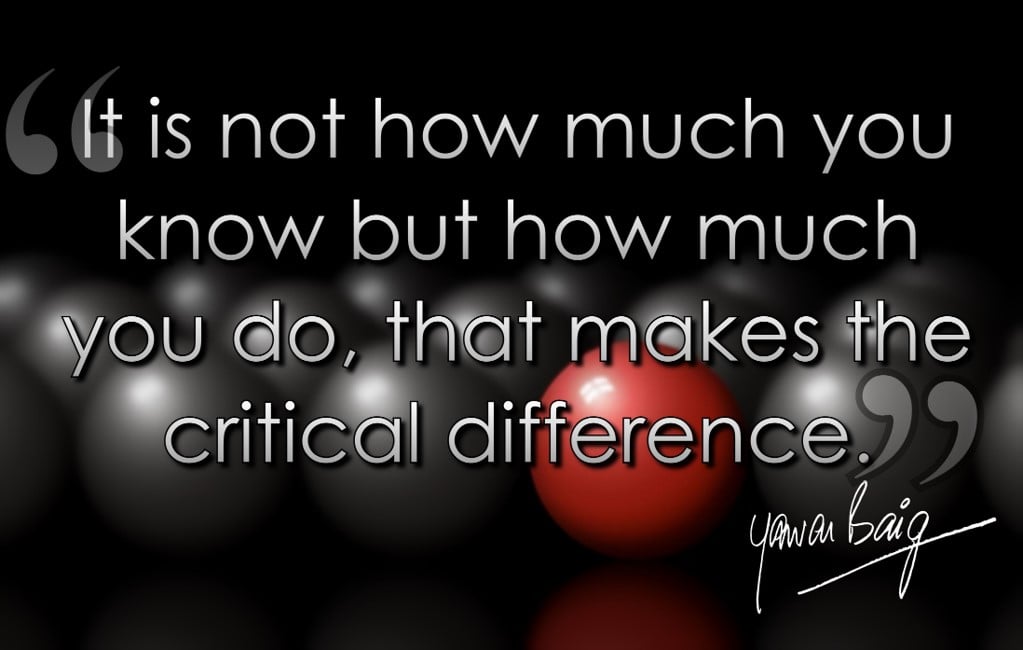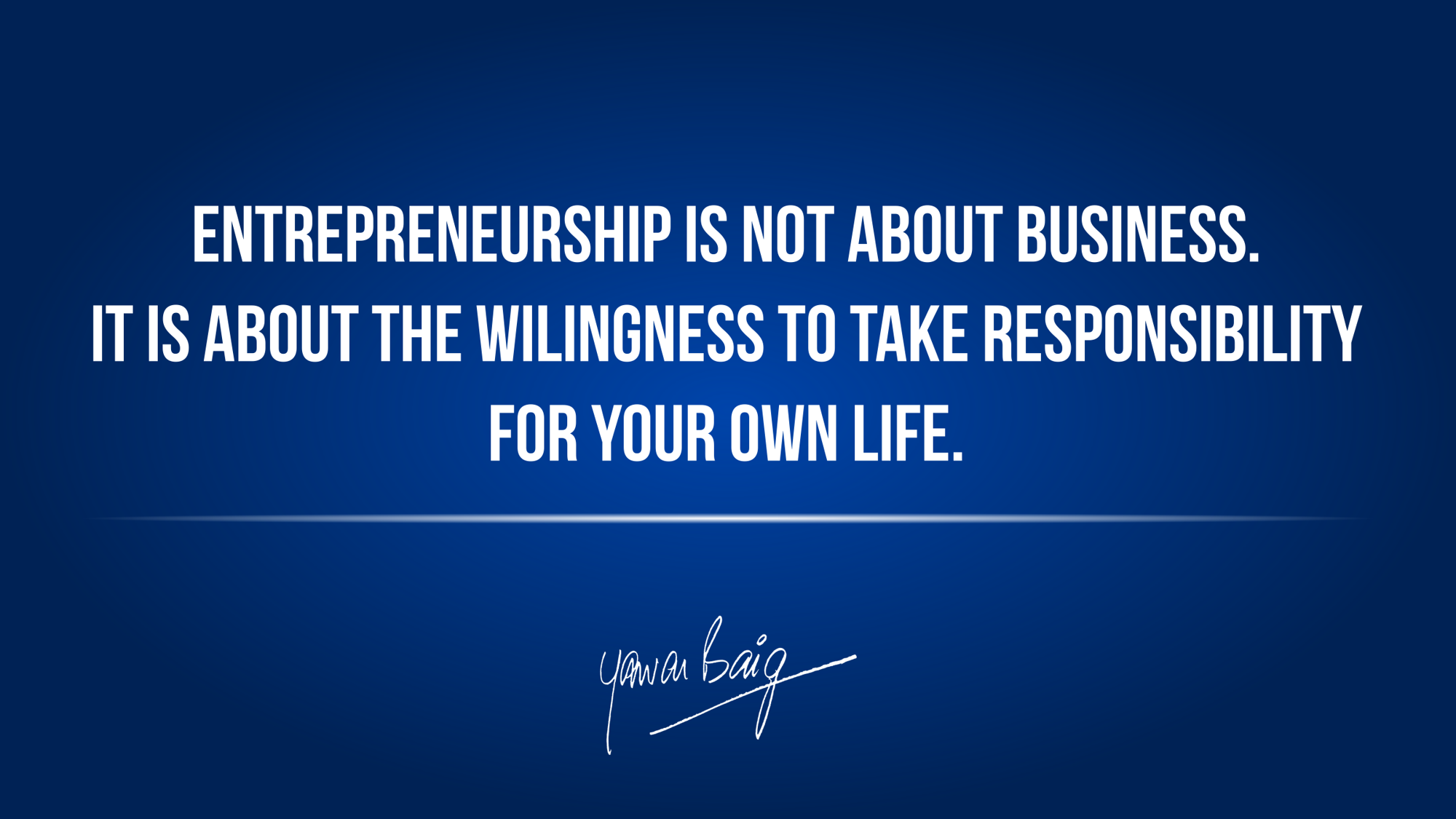Entrepreneurship is about taking charge of your own life. It takes a lot of courage, some insanity, strategic thinking, a thick skin, boundless energy, resilience like a truck tyre, sincerity, and hunger to succeed. If you don’t have these, get them. They are on the discount shelf in Walmart. You don’t think so? You are right. You can’t buy these. You must earn them. With sweat, tears and sometimes blood. I did. And this is my story.

I had read the writing on the wall in 1983, the year I joined the tea planting industry. I loved the job. I loved the surroundings even more, but I could see that it was not somewhere that I could make a long-term career. Too isolated and too specialized with skills that are very difficult to transfer to other industries. I therefore worked with the idea to use my time in the plantations as a step to becoming an entrepreneur. I believe that it is the logical step for people in terms of their career development to eventually become entrepreneurs and take charge of their own destiny. Some do this within organizations, but I was determined to go the full limit and be on my own and set up my own business.
In 1983, I had gone to attend an ISABS (Indian Society for Applied Behavioral Science) training program. It was called a Personal Growth Lab (PGL). It was a two-week affair where you sat on the floor leaning on bolsters and spoke about yourself and what was happening to you, trying to keep to the here & now. We had two facilitators in the first week and two others in the second. I can’t remember much of that lab except two things. One was an incident that happened during it and another was the overall feeling at the end of it.
During the session, I spoke about my here & now at great length, almost all of it complaining about my boss, who was corrupt and unfair and a bad manager. This took a long time as I poured my heart out. At the end of it, when I looked expectantly at the group for sympathy, the facilitator Aroon Joshi said, “Okay, so what?” To say that I was shocked is an understatement of high order. I was flabbergasted and not a little humiliated. I had no idea how to react.
I looked at Aroon and he looked at me with a smile on his face showing his concern, but in silence.
“I have no idea what you mean,” I responded.
“I mean, now that you have said all these things to us, what do you want us to do about this?”
“You can’t do anything about this, I have to do something.”
“That is exactly what I mean,” said Aroon. “So what are you going to do about this?”
I sat in silence for a long time. But out of that incident was born the concept of ‘Master’ and ‘Victim’ that I now teach people.
I realized that what Aroon Joshi had got me to do with that simple question and his clearly visible concern was to confront my reality that the solution to my problem was in my own hands. And that no amount of complaining was going to solve the problem for me. I felt a surge of energy when I owned up internally that the problem was mine, not the manager’s. That I could solve it – no idea how at that time – but I had the option to do something about it. That I was not helpless, forced to bear whatever burden was thrown at me. Amazing how simply accepting ownership of life’s problems makes them smaller. What it does is to put them in perspective. The problem itself does not go away simply because we accept ownership for it, but the helpless feeling goes away. I re-defined the problem in my own context. Not ‘What happened to me’ but ‘What can I do about what happened to me?’ I realized that one of the ways we run away from solving our problems is to define them as someone else’s.
For example we say, “He insulted me.”
“She does not listen to me.”
“My boss does not understand me”, and so on.
Whereas the real definitions and their conversation is as follows:
“He said something which I chose to see as insulting. I chose to give the power to hurt me into his hands. Now what a dumb thing to do!! I will take back the power to hurt me from this person. I will stop yearning for the approval of others. I will hold myself up to myself and take control of my own emotions. My emotions are inside me. Not in someone else’s hands to play with unless I choose to hand them over.”
“I am unable to convince her. Now how can I understand what is important to her so that I can see if what I want her to do will make meaning to her at all. If I find that my proposal is likely to have meaning for her, then I need to see how to put it to her so that she sees the value in it for herself. This means that instead of trying to convince her, I need to listen to her a great deal more first. Then and only then can I hope to understand her priorities and maybe she will then start to listen to me.”
“It is not my boss’s need to understand me. It is my need that he should understand me. What can I do to make that happen? Maybe I need to understand what is important to him first. Then show him how I can help him to achieve his goals. That way he will see the value of having me on his team. In effect it is more a relationship thing and I need to invest more in this relationship if indeed it is important to me.”

I realized that if I start thinking this way and try to look at what is in my power to do, then life becomes very different. There is no frustration. No loss of energy and no fear of others. And in this realization was born my life goal. I wanted to be able to do what Aroon Joshi did for me. To help others to realize their own potential. To tap into the wellsprings of capability that we are all born with, but which often get hidden under tons of conditioning garbage. To become fully what I can become. I decided that is what I wanted to do with my life: enable people to realize their potential. Help people to make their dreams come true.
Aroon Joshi is a role model and a very dear friend and the inspiration that started me on the path of self-discovery and development as a leadership trainer. The most important thing that I learnt was the power of knowing what is going on inside myself. I coined a phrase for this. I say, “What you name you control. What you don’t name controls you.” In my life, I have found this to be very true. Whenever you are in the grip of any strong emotion or if you are in a confused state, if you take a little time out and get in touch with yourself and identify the emotion and name it, then you will find that immediately the intensity of the emotion will decrease, and the confusion will start to clear. This is not an instant solution, but it creates the frame of mind where you can now start thinking more clearly and will be better able to find a workable solution. On the other hand, if you can’t name the emotion, then it is very likely that it will overpower you and you will end up saying or doing something that you will later regret.
The core issue here is to get in touch with yourself and name the feeling. I have found that most adults have a lot of difficulty with this. Children are almost always much clearer about their feelings. But most adults have succumbed to societal conditioning. As they grow older, they get more rigid and more frightened of breaking out of their familiar ground.
Our societies being what they are, where for the male, aggressiveness, dominant behavior, competitiveness, and decision making are all valued, most men are very hesitant to own up to feelings of sadness, pain, love, confusion, caring, nurturing and so on. These are supposed to be feminine feelings. Women on the other hand have problems with asserting their authority, standing up for their rights, refusing to cooperate with the powers that be, especially if they are male, as they are in most cases, and have difficulty demanding personal time, space, and wishes. Many feel guilty if they do it. Consequently, when it comes to acknowledging the so-called opposite feelings from whatever gender one is, it becomes difficult for many people.
But when people do get over this barrier and are able to acknowledge these feelings there is a visible change in them. They look more powerful, they smile more, and their energy levels rise suddenly. Life suddenly has more meaning than it ever had before, and they look on life with renewed hope. For the facilitator to see this transformation happening before his eyes is something that can’t be described and a reward that has no equal. It is like watching a flower bloom at top speed. It is a joy that I have had the privilege of witnessing many times and something that I never get tired of seeing again and again. What it does to you is also incredible. It is almost like a new fountain has suddenly burst forth in your heart. There is new sunshine in the room, a cool breeze blows away the dust of tiredness and all that remains is for you to jump with joy. And sometimes you do.
I decided that I would make it my life’s career to train people to be leaders and that one day I would become the best and most powerful leadership trainer that the world would ever have seen. I wrote this goal down as that is the first step to realizing it. And then I started working on it.

Ma sha Allah! What an inspiring dive in to a journey of several decades that has positively impacted on so many people across the globe. I personally stumbled across Mirza Yawar’s short video in 2009 or so holding a private session in Malaysia highlighting How NOT TO TEACH which transformed my vision in to a reality that has helped changed the way we educate our children. It was over a decade later that I came to know the NAME and then later meet with the PERSON of my beloved mentor Mirza Yawar Baig. Jazakumullah Khairan. Engr Basheer Adamu, Kano –… Read more »